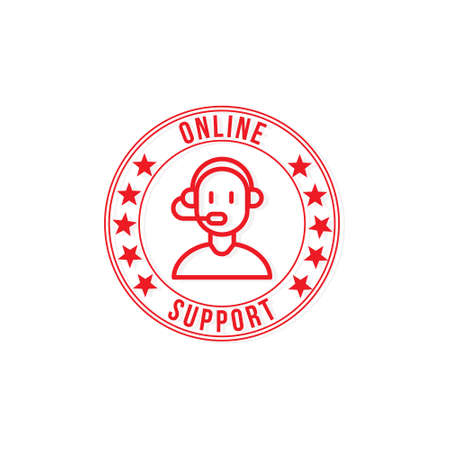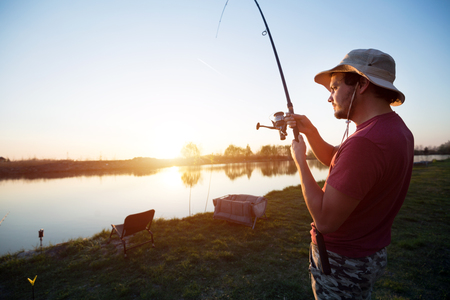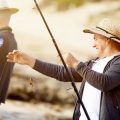Introduction: Honoring Veterans Through Fishing
Fishing has always been more than just a pastime—it’s a way to connect with nature, unwind, and find peace in the moment. For many American veterans, guided fishing programs and charters offer even more profound benefits. These initiatives provide veterans with opportunities to reconnect with their communities, build new friendships, and experience the therapeutic effects of being outdoors. As they transition back into civilian life, many veterans face challenges such as isolation, stress, and adapting to new routines. Fishing programs tailored for veterans are designed not only to address these issues but also to honor their service by providing them with meaningful experiences that promote wellbeing and community reintegration. Whether it’s a day trip on a local lake or a multi-day charter along the coast, these programs represent an important way for all of us to give back and show our support for those who have served.
Top Veterans’ Fishing Charters and Programs Across the U.S.
Across the United States, a growing number of organizations are dedicated to offering therapeutic fishing experiences for veterans. These programs not only provide unforgettable days on the water but also foster camaraderie, support mental health, and help veterans reconnect with nature. From coast to coast, here are some of the most respected and impactful veterans’ fishing charters and programs you’ll want to know about—and support.
| Program/Charter | Location | Key Features |
|---|---|---|
| Heroes on the Water | Nationwide (multiple chapters) | Kayak fishing events, peer support, adaptive equipment for wounded vets |
| Project Healing Waters Fly Fishing | All 50 states | Fly fishing instruction, outings, and ongoing mentorship for disabled veterans |
| Tight Lines for Troops | Michigan (Great Lakes region) | Free annual charter trips on Lake Michigan; focuses on WWII, Korea, and Vietnam-era vets |
| Fishing with America’s Finest | California (San Diego area) | Deep sea charters for active duty and veteran military personnel |
| The Fallen Outdoors | Nationwide (regional teams) | Fishing and hunting adventures, community-building for all service branches |
| Operation North State: Top Shelf Fishin’ Festival Series | North Carolina | Lakeside tournaments and guided trips tailored for wounded warriors and disabled vets |
Diverse Approaches, Common Mission
No matter their size or location, these organizations share a common goal: supporting veterans through outdoor recreation. Some focus on fly fishing in mountain streams, while others organize saltwater excursions or freshwater lake tournaments. Many offer specialized gear and volunteer guides trained to assist with physical or emotional challenges faced by participants.
A Nationwide Impact
The reach of these programs demonstrates how widespread—and needed—veterans’ support networks have become. Whether it’s a chapter-based model like Heroes on the Water or a single annual event like Tight Lines for Troops, each initiative brings together veterans from diverse backgrounds and service eras. Their impact extends far beyond catching fish: they build confidence, offer healing, and create lasting bonds among those who have served.

3. How These Programs Make a Difference
Veterans guided fishing programs and charters are about much more than just a day out on the water—they provide life-changing benefits uniquely suited to those who have served. One of the most significant impacts is therapeutic value. Time spent in nature, away from daily stressors, offers veterans a peaceful space to decompress. Studies have shown that outdoor activities like fishing can help reduce symptoms of PTSD, anxiety, and depression by encouraging mindfulness and relaxation.
Beyond mental wellness, these programs foster important skill-building opportunities. Many veterans appreciate the challenge of learning new angling techniques or navigating unfamiliar waters. This hands-on learning not only builds confidence but also provides a sense of accomplishment and purpose—something many service members miss after transitioning to civilian life.
Social connection is another key benefit. Guided fishing trips create a supportive environment where veterans can bond over shared experiences both on and off the battlefield. Being part of a group that understands military culture helps break down feelings of isolation and creates lasting friendships. The camaraderie found during these outings often extends beyond the boat, providing an ongoing support network.
Ultimately, these programs facilitate healing—physically, mentally, and emotionally. Whether it’s through the calming rhythm of casting a line or the encouragement from fellow vets, participants frequently report feeling more at peace and empowered after their time on the water. Supporting these programs means investing in meaningful recovery for America’s heroes.
4. Ways You Can Support
Supporting veterans guided fishing programs and charters goes beyond booking a trip—your involvement can make a real impact in the lives of those who served. Here are actionable ways individuals and communities can help these initiatives thrive:
Donate Financially or Provide Supplies
Many veteran-focused fishing programs operate on tight budgets or rely entirely on donations. Your financial support helps cover costs like equipment, boat maintenance, fuel, and permits. Alternatively, consider donating new or gently used fishing gear.
| Type of Support | Examples |
|---|---|
| Financial Donations | One-time gifts, recurring monthly contributions, corporate sponsorships |
| Gear & Supplies | Rods, reels, tackle boxes, bait, life jackets, sunscreen, snacks |
Volunteer Your Time and Skills
Volunteers are the backbone of many veterans’ fishing programs. Whether you’re an experienced angler or just passionate about helping others, your time is valuable. Opportunities may include assisting on trips, helping with event planning, or providing administrative support.
How to Volunteer:
- Contact local organizations to ask about volunteer needs
- Offer to help at fundraising events or community outreach booths
- If certified, volunteer as a fishing guide or safety officer on outings
- Share your professional skills (marketing, photography, web design) to help programs grow their reach
Spread Awareness in Your Community
You can amplify the impact of these programs by sharing their mission with friends, family, and colleagues. Use social media platforms to highlight upcoming events or success stories. Hosting informational sessions or inviting program representatives to speak at local clubs and schools also helps build community connections.
Participate in Fundraisers and Events
Many organizations host tournaments, banquets, or raffles to raise funds for their activities. Participating as an attendee or sponsor not only supports the cause but also fosters camaraderie among veterans and supporters alike.
Quick Reference: How to Get Involved
| Action Step | Description/Impact |
|---|---|
| Donate Money or Equipment | Keeps programs accessible and well-equipped for veterans |
| Volunteer Time/Skills | Ensures smooth operations and meaningful experiences for vets |
| Promote Locally/Online | Grows awareness and attracts new participants & donors |
| Attend Events/Fundraisers | Directly contributes while building supportive community networks |
No matter how you choose to get involved, your efforts play a vital role in supporting veterans transitions back into civilian life through the healing power of fishing and fellowship.
5. Success Stories: Veterans Share Their Experience
Nothing speaks louder than the real voices of veterans whose lives have been touched by guided fishing programs and charters dedicated to those who served. These firsthand accounts highlight just how meaningful these opportunities can be for veterans, both on and off the water.
“A Chance to Reconnect” – Jason, U.S. Army Veteran
“After leaving the service, I struggled with isolation and stress. When I joined a veterans’ fishing charter in Florida, I didn’t expect much—maybe just a day away from it all. But what I found was camaraderie, laughter, and genuine understanding among people who ‘got it.’ The guides were patient and experienced, but more importantly, they treated us like family. Landing that first bass wasn’t just exciting—it was healing. These trips have become my go-to way to decompress and reconnect with fellow vets.”
“Finding Peace on the Water” – Maria, U.S. Navy Veteran
“I’ve dealt with anxiety since coming home, and traditional therapy never quite worked for me. A friend recommended a veteran-focused fishing program out in Oregon. I went with no expectations but left feeling lighter than I had in years. There’s something about being out on the water, learning new skills, and sharing stories with other veterans that helps you find peace. The support from the community—and even from the guides—reminded me that I’m not alone in this journey.”
More Than Just Fishing
These testimonials are just a glimpse into how these guided programs offer far more than a day of sport—they provide a lifeline for veterans seeking connection, resilience, and renewal. By supporting these charters, you’re helping empower heroes to heal through America’s great outdoors.
6. Getting Started: How Veterans Can Join
For veterans interested in experiencing the camaraderie and healing power of guided fishing programs and charters, getting involved is easier than you might think. Most organizations are passionate about making their programs accessible to all who have served, regardless of fishing experience or physical ability. Here’s a step-by-step guide on how to get started, what to expect, and key resources that can help you along the way.
Finding the Right Program
The first step is researching organizations that specialize in veterans’ fishing trips. Well-known national groups like Project Healing Waters Fly Fishing, Take a Vet Fishing, and Heroes on the Water have established chapters across the U.S. You can search their websites for local events or reach out via email or phone for more details. Many local fishing clubs and charter companies also offer veteran-specific outings—don’t hesitate to ask at your nearest VA office or community center for recommendations.
Key Contacts and Registration
Most programs have an online registration process where you’ll fill out a short application and provide proof of veteran status (such as a DD214). Some may require medical clearance if you have specific health considerations. If you need assistance, coordinators are typically available by phone or email to walk you through the process or answer any questions about accessibility and accommodations.
What to Expect During Your Experience
Once registered, you’ll receive information on dates, locations, what gear (if any) you should bring, and what will be provided. Most programs supply all necessary fishing equipment, instruction, and safety gear—plus refreshments or meals. Outings are designed to be low-stress and supportive, with experienced guides who understand the unique needs of veterans. Whether you’re brand new to fishing or a seasoned angler, these experiences focus on relaxation, building connections, and enjoying time on the water.
Additional Resources for Veterans
If transportation or mobility is a concern, many organizations offer shuttle services or adaptive fishing equipment. Don’t let financial worries hold you back—most veterans’ fishing programs are free thanks to generous donations and sponsorships. For more information on available opportunities near you, check out resources like the U.S. Department of Veterans Affairs, your state’s fish and wildlife agency, or the websites of major veteran service organizations.
Taking this first step can open up new friendships, skills, and support networks—all while enjoying some quality time outdoors. If you’re ready to join a veterans’ guided fishing program or charter, reach out today and see where the journey takes you.


